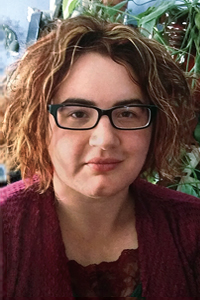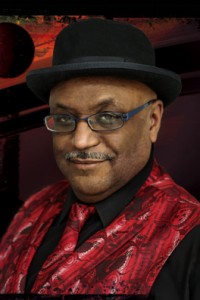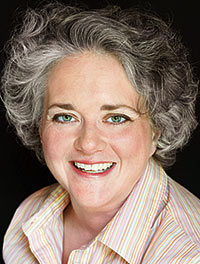Kameron Hurley:If You Want to Level Up, Get Back to the Basics
 There are few things, for me, that are as equally depressing and energizing as reading a really great book. Great books are why I got into this business in the first place, which is why I’m often so shocked when I hear from other professional writers that they don’t read anymore. Try asking a panel of professional writers at your next convention to name five books they read this year. The silence is often worrisome.
There are few things, for me, that are as equally depressing and energizing as reading a really great book. Great books are why I got into this business in the first place, which is why I’m often so shocked when I hear from other professional writers that they don’t read anymore. Try asking a panel of professional writers at your next convention to name five books they read this year. The silence is often worrisome.
Oh sure, I know writers who purposefully avoid reading while they’re writing a book, because it can be so humbling. Some avoid reading while writing because they don’t want someone else’s work directly influencing their own writing (pssst… it’s nearly impossible to avoid this. Our work is the sum of our lives and our stories). Of course it’s tough to make time for reading if, like me, you’re juggling a lot of writing, freelancing, and a day job, but if you’re looking to level up your skill as a writer, it’s in your best interests to read more, not less. As pros, we love to tell new writers to read a lot, but at some point we stop taking our own advice!
I’m working on my eighth novel for publication, writing about a short story a month for Patreon, and contributing to the odd anthology. You’d think that after you get a few books under your belt, you’d have some confidence in what you’re doing. To some extent, this is true: I have the confidence that I can complete a book more or less in a year. Whether or not I feel what I’ve written is a good book is another matter. It doesn’t help that every book brings with it a new set of challenges. What helps me is reading books that overcame the same narrative challenges that I’m struggling with. I also find that reading the work of others inspires me to try new and different things with character, prose, style, and overall structure that I wouldn’t have thought about on my own.
If writing novels is your chosen profession, the fastest way to obsolescence is to cease learning and leveling up your craft. As every mid-career writer knows, selling one book never guarantees a second sale. We are all only as good as our next book. Nobody wants to see a writer who can’t reinvent themselves when sales start to flag. You must always be improving. It’s the only way to stay in the game. Maybe I should qualify that, before the hate mail starts: it’s the only way I feel I can stay in the game.
To do that I need to see what other people are doing. I need to stay on top of the field. I need to read the very best. I need to read what’s selling. And what’s not. I need to read what people love. And maybe, sometimes, take a peek at what people hate.
I got into writing for the same reason many readers did – I read bad books and thought, ‘‘I can write better than that!’’ And the truth is that yes, I can write better than some writers now, but I’m not where I want to be yet. I probably never will be. To be still is to lose interest. To be still is to die. I decided early on in my career that my goal was to be among the great, and when you set a high bar for yourself like that, it means you just don’t quit.
I read a ton of books as a child and teen because I had the time. I read three books a week while living in Chicago because I had 15 hours of commuting time every week. That was an exceptional time for getting through my to-read pile. I read, and I read, and I read, and then writing consumed all my reading time, and I found that my idea of my own work’s brilliance started to become skewed. When I stopped keeping up with what other people were writing, it became difficult to look objectively at my work.
One of the benefits of a media that has become increasingly bleak is that I’m spending less time on social media and more time with my nose in a book again. I recently read 14 books in ten weeks, captivated by Sue Grafton’s comforting Alphabet series. I also sat down and studied the plots of some of my favorite thrillers. I was back to actively practice in the profession that I love. No more excuses.
I discovered that my reading time hadn’t been eaten by work, but by relentless engagement with media streams that now seem to be beaming in dispatches from a dystopic future. Now is a great time to turn to the field that captivated me from the start, and buckle down on becoming a better writer.
Reading is crucial in this profession. When I meet writers who tell me they don’t read it’s like talking to an architect who says they never look at other buildings. Certainly, you can build a career that way, but it sure is going to be a lot tougher. Our profession is difficult enough as it is, so I encourage you to give yourself the advantage wherever you can.
I’m often asked about work-life balance, since I am a novelist who also has a day job and a personal life to juggle. The reality is that there’s no such thing as work-life balance. Some days you are doing great with your books, but poorly at your day job. Some days you just want to crawl into bed and just start again tomorrow. But if something is important to you, you make time for it. This is the year that I re-invest my energy in reading and studying great work instead of just making words.
When I attended the Clarion West Writing Workshop, author Carol Emshwiller told us, ‘‘Practice doesn’t make perfect. It makes permanent.’’ Writing the same book over and over, making the same mistakes over and over, without learning anything from it, might feel like progress because there are a lot of words on the page, but it’s just counting time. If we can make time to write novels, we can certainly make time to study the novels of others.
More importantly even than leveling up your own career is getting back in touch with what you loved about reading in the first place. Explore new worlds, travel to distant stars, meet rogues and pirates and scientists and settlers and space jockeys and terraformers. And when you come back from those distant shores and find yourself back in this reality, you will come back armed with the tools to make your own story. To pilot a way forward. To imagine how things could be really different, not just in the fiction you create, but in the reality we are all building together.
Reading teaches us empathy and fosters wonder, and we will be sorely in need of both in the years to come. Don’t just do it for you, do it for the world you want to live in.
Kameron Hurley is the author of The Stars are Legion and the award-winning essay collection The Geek Feminist Revolution, as well as the God’s War Trilogy and The Worldbreaker Saga. Hurley has won the Hugo Award, Kitschy Award, Locus Award, BFA Award, and Sydney J. Bounds Award for Best Newcomer. She was also a finalist for the Arthur C. Clarke Award, the Nebula Award, and the Gemmell Morningstar Award. Her short fiction has appeared in Popular Science Magazine, Lightspeed Magazine, and many anthologies. Hurley has also written for The Atlantic, Bitch Magazine, The Village Voice, and Entertainment Weekly. She posts regularly at KameronHurley.com.
From the February 2017 issue of Locus Magazine





